#bc they add nothing to the story and the main source of discourse is how the companions reacted to one (1) word
Explore tagged Tumblr posts
Text
weekes saying all that mythal shit is up to interpretation is so weird to me because instead of worrying about leaving all of solas' past up to vague interpretation to (new) players because you're too chickenshit to stand by your established lore you could've focused on ghilan'nain and elgar'nan and who they were and what they became. elgar'nan literally let the other evanuris slay his wife and he watched on, and then he rotted in a prison made by what he referred to as his wife's "lapdog" and second in command general. and what of ghilan'nain? what is their relationship? why is it just the two of them in that prison when there were more evanuris trapped in there? why are they simultaneously this omnipotent threat capable of spawning blight at will but also two dimensional villains chasing their own tails half the game while solas just poses and speaks in his riddles in the fade. also a fragment of mythal is inside of morrigan, does no part of her gaf that her husband is literally terrorizing the world she loves? hello??
#veilguard critical#like w/e. i know where i stand on tye mythal solas thing bc i dont have piss for brains and i still care ab established lore in inq#but if u wanna cater to the new players n the edgelords like be my guest ig like#dragon age thoughts#and i know a lot of this game went thru overhauls and they definitely#DUMBED DOWN the political & historical intricacies of solas' motives but like damn#you couldve just. stood by something you established.#like it's bad enough as it is that the gameplay treats me like im five with convos ab what just transpired and#all the post regret frescoes cutscenes??? like couldve just not added those#bc they add nothing to the story and the main source of discourse is how the companions reacted to one (1) word#and then it's like these people dont know solas anyway??? so their interpretations are skewed by default?????#and then in game mythal rly dgaf when she speaks thru morrigan or when u ask for her blessing or w/e#so it's even more ???? who did u do this for#also i saw some ppl say its a love triangle but i hardly believe that bc again#mythal went after elgar'nan every damn time and then told solas shes built diff she wont get betrayed#also w her being solas' creator & enslaver u cant say it's ”up to interpretation” ?? my brother in christ that is#stockholm syndrome at best and at worst it's literally veering into emotional physical and psychological abuse territory
45 notes
·
View notes
Note
thanks loads for the quick response, you were so lovely!! 🌸 as i said i’m just starting to educate myself so i don’t want to get things wrong or support someone who doesn’t deserve it. for example, Eliza.. like im still confused about this other topic bc i’m not interested enough, my heart already belongs to Alycia and i mean Alycia only, so… that’s what i’m focusing on. okay so basically that’s what i thought, the “could’ve handled it better” was about her not actually handling it at all, in a way, which i like to believe has nothing to do with her “hating” lexa (it’s something i keep reading online and idk where it comes from) or her fans. Bad advices and likely her trying to save Jason’s a** lead her to shut the discourse. but if this makes sense for the first weeks/months following lexa’s death, what i don’t understand is why she did seem annoyed when fans brought up lexa to conventions etc. but if she hated the fans and/or lexa, i can’t possibly believe she would’ve ever accepted to come back to the show for the finale. she came back bc she cared (about lexa, i mean SHE played her for gods sake, it must be hella important for her as well!!) and knew it was important for the fans, i guess. I’m almost scared to talk about this as i know Eliza’s fans are mad about it and especially Eliza/b0b supporters (i’ve seen enough on Twitter dear lord) but if what some people say is true, that he asked Jason to fire her bc he was jealous of her success, then maybe HIM being fired was also one of the reasons she willingly came back? like don’t get me wrong, i’m sure a big fat paycheck played a huge part too 😅 but trying to add more pieces to the puzzle here, as i really know like 40% of what happened behind the scenes with Jason and all when lexa was killed off, so again, i’m sorry if this always ends up being super long but i’m trying to do my homework here 📋🖊️ (and you genuinely are super kind btw which i’m super grateful for 😭)
I have never opened my mouth about the E and B topic because I am not about to open that can of worms or invite their fans to fight me here. I was a huge E fan and just a week before all the shit came out i was talking to a friend about how i wish clarke and her got the same love Lexa and Alycia do... that came back to bite me in the ass real quick 😅 you guys know how much i love Clarke but damn was it impossible for a bit there for me to be able to watch clexa and clarke scenes again and be able to seperate e from Clarke. We clearly got there tho 😌
In a way, I can understand why she was a little annoyed at cons. Alycia never went to a con with the main intent of talking about Lexa, she was on FTWD, she was probably very excited about it and was sent there to talk about it and yet every question she got was about a character that st that point she had not played in maybe a year if you account for the time between filming and the episodes coming out. And its probably nerve wracking to have a room full of people who care so deeply for a character and that are part of a community that is marginalized and her having to say the right thing. Not to meantion like most actors sometimes the line betwwen Lexa the character and Alycia the actor got a little blurred and i get the sense Alycia is the type of actor who wants a clear separation between herself and the character. Maybe wrongly so she tried to distance herself from Lexa not because she hates the fans but because it was what she and others around her felt was right for her career having just started on a new show.
We know B was most likely fired but I doubt that he was the reason why Alycia left. I truly think Jrot believe he was doing something with Lexa's death and that he was telling a epic story, i really think any other story of B wanting her gone and what is now know its false about her not being able to do both shows (AMC was ready to let her continue on the show, i wish i could link you a source to this) - making Alycia agreeing with Jason probably just PR trying to not cause a drift. Alycia (and Jason) kind of alluded to the fact that there had been chances for Lexa to come back before but that Alycia didn't feel comfortable with it and I do think that shows that she respected the fans and didn't want to be used as a prop to make fans to watch the show again. Her being in the finale was a surprise (well, not to me and many others because it felt like there had been hints being dropped for a good while). While i dont doubt the nice pay check wasnt an incentive Alycias entire message for the shows finale felt very sincere to me and very clearly dedicated to the fans. Blorke/B/E fans (well, B fans, lets be real here they only care for her because shes with him, they used to call her names before that) think that just because Alycia is both rather private and doesnt try to take fans money left and right that she hates her fans and hates Lexa. I just think that Alycia didnt really speak up when it was the time for it for whatever reason - i dont think it was out of malicious intent but i do think she should have said more - and talking about it now would just come across as trying to stir something up unless it was directly asked of her to talk about it. Id like to think she has proven herself an ally and a decent person where i dont think she has to talk about Lexa for me to consider her "forgiven" for not speaking up back then.
No need to say sorry, i totally get trying to understand what the fuck happened in this fandom of ours 😅 i just hope im saying things accurately because i have been here since mid 2015 so some things really get blurry around the edges. There used to be master posts or something im sure that explained things because this was a whole thing that last through most of 2016.
☺️ i might not remember or know how to answer everything but if you have any more questions about the fandoms history and if i can help and respond, feel free to ask me! :)
#letter opened#god it has been a wild ass ride sjdbdjd#what is it about this show that made people foam at the mouth the way they did christ sjsjd
2 notes
·
View notes
Text
7 Anti LO Asks
1. tbh the fact rachel purposely didnt let persephone have any romantic relationships before hades gives the impression that had persephone had any other experience, she'd see right through him and not want him because she had better. not having any other point of reference isnt good. its setting up that hades can get away with whatever he wants because she doesnt know anything else. thats really not a healthy dynamic to have even while dating, much less eternal marriage.
2. You know what’s weird? How Hades is a 2000+ year old being and still has not gone through his trauma. We know that he was eaten by Kronos when he was around 8 and stayed there for like 13 years if i’m correct (in the LO version), so we can assume that when he got out he was in his early to mid twenties. And then he fought in the war which we don’t know how long it was in LO bc there’s no info on that at all but let’s assume that that lasted 100 years.. he’s still pretty young there. So how is it that he’s only now getting help for his traumas? Which we don’t even see actually, it’s just a sentence said by him when he adopts the little dog. We don’t even know how old he actually is bc it’s always assumed it’s 2000+ but 2000+ years old could mean 2030 years old or 2999 years old or even 3000 and more and he has just lost track of time. All of these years and he still has not processed or made any progress?? At all?! Unless therapists are a new thing in the Underworld but we have Chiron who says that she was a physician in the old world but got tired of it so she decided to study the human mind. And that must have been quite some time ago. So why exactly is Hades a 2000+ broken man who needs to be fixed by a 19 year old going through her own trauma?
3. The underworld being an infertile world doesn’t make sense at all. If we compare the underworld with the underground it’s a fact that where there’s decay if is more fertile. Not to mention that in the myths the underworld is in fact considered a fertile land. We know that the underworld is full of souls, and souls are considered what give life to a body or place, so the underworld being a desert still doesn’t make sense at all.
4.If I may also add, just because LO is a “retelling” doesn’t mean it doesn’t harm Greece or Greek people. They still exist, funnily enough, they didn’t all die once Alexander the Great stop conquering. They’re a country full of strong, passionate people who have gone and are still going through massive problems and hardships. They are also a country who are still, at best, ignored, or at worst, mocked for the suffering they must endure by nations that are far from economic instability and from actual war zones like Greece is. Despite all that, their mythos are seen with great reverence to this day, and they don’t “gatekeep” it, you can ask any Greek in here and they’ll tell you they enjoy stuff like the Disney version or PJO just fine, but you have to stop and wonder why LO is a Greek myth product that is almost universally despised to Greeks who know it exists.
It’s pretty obvious why, RS not only butchers the myths completely to where they don’t even resemble what they once were, but her constantly silencing and badmouthing actual Greeks who want to help her make it more accurate is not a great look. She’s acting as if she, a white woman from an island made of literal England reject descendants, somehow not only knows more about Greek myth than actual Greeks, but that she OWNS the mythology and she can do whatever she wants with it, and only those who agree to her biases know what they’re talking about while everyone else is wrong, so obviously Greeks don’t know Greek mythology! Even media products in the same, non-Greek realm as her get her ire. Case in point, we know she’s hostile to PJO, she badmouths the Disney movie all the time, she complained about Blood of Zeus (emphasize on ZEUS) didn’t revolve around HxP, and despite them being heavily promoted by her own employers, she never speaks of Punderworld or HxP ficlets, even when her fans harass them and in Ficlets case purposely got them kicked off Canvas for “copying” LO, meanwhile she will happily promote OSP because they confirm her biases and kissed her butt in their HxP video. What does this tell us? Because it doesn’t seem very nice.
Of course she’s allowed as a creator to play with the mythology as she wants, but even then there are still limits to adhere to, and she never does it because obviously her half-baked concept of the “mythology” is way better than the 3000+ years of texts and interpretations out there. Sure she has people flinging themselves at her to offer her help for free, especially Greeks and academics, but what would they know over her, the self proclaimed master of mythology itself? Obviously she created it all in 2016 when she decided to draw a sexy pink girl and that’s it. Greece and everyone else was just using a fake version this whole time!
It seems from her POV, Greece ands its citizens are, in her own words “haters” who apparently know less about Greece and its own mythology than her, a white woman who uses a fanfic-writing white supremacist as a main source. The ego on this woman is astonishing.
5. May I also add to the age discourse, something like Edward and Bella can get away with it because Edward stopped aging physically, mentally, and emotionally at 17, and even in story there is a logic to them still going to HighSchool after all this time. He may be 117 age wise, but he’s at the same exact level as Bella in every other regard. That doesn’t excuse his creepy actions, of course, but there is in canon logic to it to justify it and make sense.
I’d say LO could use this too, but tbh it wouldn’t work. Either it’d involve making a CEO king as immature and childish as a 19 year old (not great) or it’d have a 19 year old suddenly be way wiser beyond her years which wouldn’t make much narrative sense, but also has some really creepy implications to it. Anyway RS dug herself into a stupid hole and doesn’t know how to get out of it.
6. im in the same boat 😭 i was watching one of those LO critique videos you posted and they were showing panels from early on and i just thought "they photoshopped this, right? theres no way it looked this bad. they're just goofing around with this" and nope, that's exactly how they looked the video didnt change a thing. the bright colors really were distracting your eyes from seeing how bad it looked.
7. Correct me if i’m wrong but in one of the first few episodes wasn’t Hades annoyed with Persephone? Especially at the panel where she wanted to drive his car? Like nothing has really changed in her behaviour with him apart from her being more flirty, but the only change is that Hades started viewing her more sexually. Always thinking about her breasts and butt, and nothing else. Half the time he was thinking about her, he wouldn’t even think of her face. So how exactly is their relationship a romantic and lovely one?
41 notes
·
View notes
Text
Elvis, Truelove and the Stolen Boy: The Tragic Machismo of Nick Cassavetes’ ‘Alpha Dog’ by Amy Nicholson
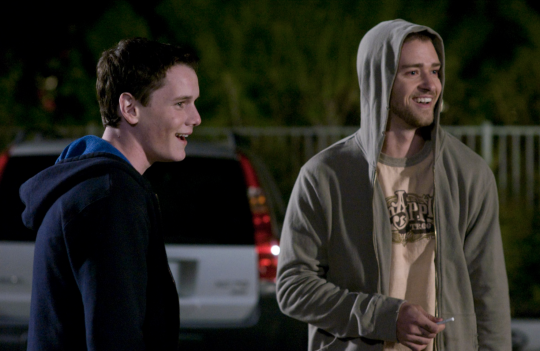
[Last year, Musings paid homage to Produced and Abandoned: The Best Films You’ve Never Seen, a review anthology from the National Society of Film Critics that championed studio orphans from the ‘70s and ‘80s. In the days before the Internet, young cinephiles like myself relied on reference books and anthologies to lead us to films we might not have discovered otherwise. Released in 1990, Produced and Abandoned was a foundational piece of work, introducing me to such wonders as Cutter’s Way, Lost in America, High Tide, Choose Me, Housekeeping, and Fat City. (You can find the full list of entries here.) Our first round of Produced and Abandoned essays included Angelica Jade Bastién on By the Sea, Mike D’Angelo on The Counselor, Judy Berman on Velvet Goldmine, and Keith Phipps on O.C. and Stiggs. Today, Musings concludes our month-long round of essays about tarnished gems, in the hope they’ll get a second look. Or, more likely, a first. —Scott Tobias, editor.]
A decade before the presidency that elevated insults like “betacuck” and “soyboy” into political discourse, Nick Cassavetes made Alpha Dog, a cautionary tragedy about masculinity that audiences ignored. Time for a reappraisal. Alpha Dog is about a real murder. Over a three-day weekend in August of 2000, 15-year-old Zach Mazursky—in reality, named Nicholas Markowitz—is kidnapped and killed by the posse of 20-year-old San Fernando Valley drug dealer Johnny Truelove (Emile Hirsch) with a grudge against Zach’s older brother. No one thought the boy would die, not his main babysitter Frankie (Justin Timberlake), not the girls invited to party with “Stolen Boy,” and not even the boy himself, played with naive perfection by Anton Yelchin, who played video games and pounded beers assuming that his new captor-friends would eventually take him home.
Cassavetes’ daughter went to the same high school as Nicholas Markowitz. The murderers were neighborhood kids and he wanted to understand how fortunate sons with their whole lives ahead of them wound up in prison. The trigger man, Ryan Hoyt—“Elvis” in the film—had never even gotten a speeding ticket. Prosecutor Ron Zonen hoped the publicity around Alpha Dog would help the public spot the real-life Johnny, named Jesse James Hollywood, who was still on the lam despite being one of America’s Most Wanted. So the lawyers gave Cassavetes access to everything: crime scene photos, trial transcripts, psychological profiles, police reports, and their permission to contact the criminals and their parents. Cassavetes even took his actors to meet their counterparts, driving Justin Timberlake to a maximum security prison to get the vibe of the actual Frankie, and introducing Sharon Stone to Nicholas Markowitz’s mother, a broken woman who attempted suicide a dozen times in the years after her son's death.
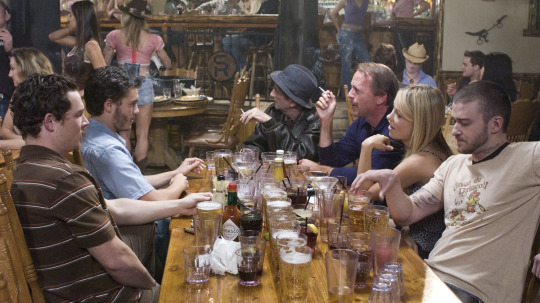
Alpha Dog, pronounced Cassavetes, was “95 percent accurate.” Which was part of why it got buried, thanks to Jesse James Hollywood’s arrest just weeks after the film wrapped. Cassavetes hastily wrote a new ending to the movie, but his problems were just beginning. Hollywood’s lawyers insisted Alpha Dog would prevent their client from getting a fair trial, and used the threat of a mistrial to force Zonen off the case. “I don't know what Zonen was thinking, handing over the files,” gloated Hollywood’s defense team. “It was stupid.”
The publicity, and the delays, dragged out the pain for Markowitz’s family, especially when they heard Cassavetes had paid Hollywood’s father an, er, consulting fee. “Where is the justice in that?” asked the victim's brother. “This just goes on and on, and I’m spending my whole life in a courtroom.”
The film, too, was pushed back a year from its Sundance premiere. Despite casting a visionary young ensemble—Alpha Dog was my own introduction to Yelchin, Ben Foster, Olivia Wilde, Amanda Seyfried, Amber Heard, and the realization that Timberlake, that kid from N*SYNC, could actually act—no one noticed when it slid into theaters in January of 2007. It wasn’t just the bad press. It was that audiences couldn’t get past that Cassavetes’ last film was The Notebook. No way could the guy behind the biggest romantic weepy of a generation make something raw and cool.
But he had. Alpha Dog is a stunning movie about machismo and fate, two tag-team traits that destroy lives. Think Oedipus convincing himself he can outwit the oracle of Delphi. But Sophocles’ Oedipus telegraphs its intentions, elbowing the audience to see the end at the beginning. Greeks sitting down in 405 BC knew they were watching a tale that came full circle. Every step Oedipus takes away from his patricidal destiny just moves him closer to it.
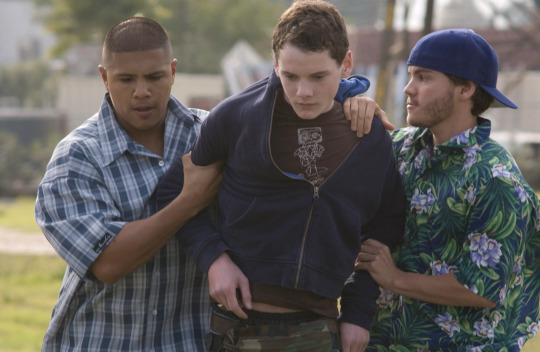
If you map Alpha Dog’s script, instead of a loop, it looks like a horizontal line that plummets off a cliff. For most of its running time, Alpha Dog could pass for a coming-of-age flick where a sheltered kid with an over-protective mom (Sharon Stone) taps into his own self-confidence, right up until the scene where he tumbles into his own grave. Audiences who’d missed the news articles about the case weren’t clued into the climax. Cassavetes doesn’t offer any hints or flash-forwards, not even an ominous “based-on-a-true-story.” (The film might have been more successful if he had.) Instead, he lulls you into joining the kegger, watching Zach crack open beer after beer as though he expects to live forever. “There’s a movie sensibility that the film doesn’t conform to,” said Cassavetes. “You don’t watch this film. You endure it.”
As Zach, his eyes red-rimmed from bong rips, not tears, is shuttled between party dens and wealthy homes, he’s given several chances to escape. He’s even revealed to be a Tae Kwan Do blackbelt who can jokingly flip his captor-buddy Frankie (Justin Timberlake) into a bathtub. But Zach stays put—he doesn’t want to get his big brother Jake (Ben Foster) in more trouble, not realizing that Johnny is too busy making nervous phone calls to his lawyer and his aggro father Sonny (Bruce Willis) to get around to asking Jake for the $1200 in ransom money.
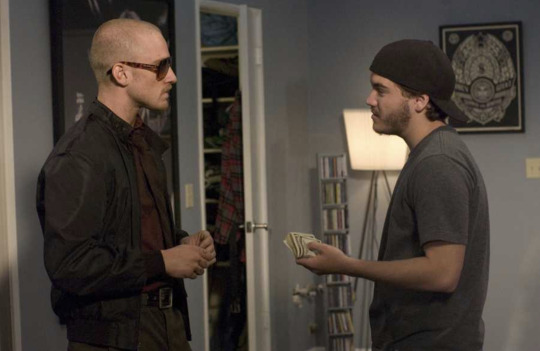
Zach’s death is disorienting, almost as if Psycho's Marion Crane got murdered in the second-to-last reel. In a minivan en route to his execution, he innocently tells Frankie he wants learn to play guitar. “It bugs me that I don’t know how to do anything,” he sighs. Meanwhile Johnny assures his dad that there’s no need to call off the killing. “These guys are such fuck-ups, nothing's gonna happen,” he shrugs, a rare example of cross-cutting that defuses tension in order to make the shock of the gunfire even worse. Up until the last second—even after Frankie binds him with duct tape—a sobbing Zach still can’t believe Frankie would hurt him, and honestly, Frankie can’t believe it himself. And Yelchin’s own early death makes you ache for him to get a happy ending, which Cassavetes dangles just out of reach.
This is how evil happens, says Cassavetes. Masterminds are rare. Instead, people like Frankie can be basically good, but can also be panicky and passive and selfish. Shoving Zach in Johnny’s van was an idiotic impulse by upper middle-class kids, who flipped out when they realized the snatching could get them a lifetime sentence. There’s no honor or glory in the violence. Johnny, the cowardly ringleader, talks tough, but orders his most craven friend, Elvis (Shawn Hatosy), to pull the trigger while he and his girlfriend Angela (Olivia Wilde) get drunk on margaritas. And after the murder, one side effect is that Johnny can’t get an erection. When Angela tries to get Johnny in the mood in their hideout motel, the walls close in on him, suffocating the mood.
Away from his boys, Johnny is weak. Surrounded by them, he's the king. Alpha Dog sets up a culture of animalistic dominance. Johnny’s rental house is basically a primate cage at the zoo, only decorated with weight benches and Scarface posters. All of Johnny’s boys jockey to be his favorite and tear each other down in order to bump up their own rank. Kindness is weakness. When a fellow dealer with the ridiculous nickname Bobby 911 cruises by to negotiate a sale, he snarls at a guy who vouches for him: “You don’t need to tell him I’m good for it, man!”
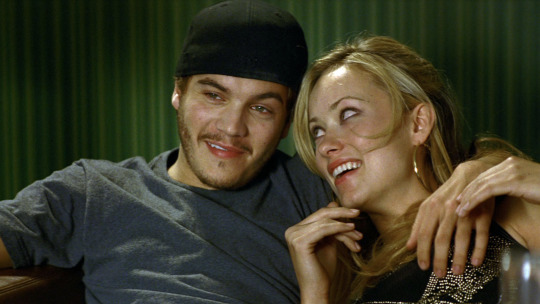
Elvis, the future shooter, is the lowest member of the pack. He can’t ease into the group without Johnny ordering him to go pick up his pit-bull's poop in the backyard. Why do they pick on Elvis? He owes Johnny a bit of money, but the source of the scorn is simply group think. No one wants to be nice to the outcast, and Elvis is just too sincere to be taken seriously. When Elvis offers to get Johnny a beer, the guys tease him for being in love with Johnny. When he says sure, he does care about Johnny, they twist words into a gay panic joke. Elvis can’t win—they won’t let him—so he literally kills to prove his worth, and winds up sentenced to death row, where the real boy, just 21 at the time of the shooting, remains today. Another life wasted.
Cassavetes humanizes the killers because he wants us to understand how their micro decisions add up to murder. Not just the gunmen. Everyone’s a little to blame. The kids who got drunk with “Stolen Boy” and didn’t call the police. The girls who told Zach that being kidnapped made him sexy. Even Zach’s older step-brother Jake, an addict with a twitchy temper who escalates his war with Johnny to a fatal breaking point. Neither boy will back down over a $1200 debt, and there’s an awful split screen call when Johnny dials Jake intending to bring Zach home, but Jake is so boiling over with anger, his Bugs Bunny voice shrieking with outrage, that Johnny just hangs up the phone.
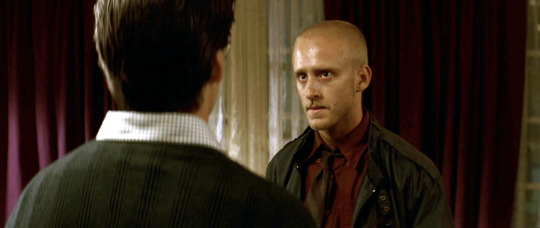
The opening credits, a montage of the cast’s own old home videos, underline that these were young and happy children—the kind of kids people point to as examples of the suburban American ideal. Over a treacly cover of “Somewhere Over the Rainbow,” we watch these real life boys being cultured to be brave: riding bikes, falling off dive-boards, running around with toy guns, going through the rituals of young manhood, from bar mitzvahs to karate lessons. Yelchin—recognizably dark-eyed and solemn even as a toddler—grins wearing plastic vampire teeth.
It takes another ten minutes for Yelchin’s character to sneak into the film sideways in a profile shot eating dinner with his parents, played by Sharon Stone and David Thornton. His Zach is barely even visible as brash Jake barges into the scene to beg for money. They say no, Jake stomps out, and Zach finally makes himself seen when he runs after his brother, begging to go anywhere less suffocating. Zach’s mom loves him so much that she watches him sleep. “I’m not fucking eight!” he yelps. He’s 15—practically a man, in his own imagination—and desperate to get away, even if it means mimicking Jake, a Jewish kid who’s so scrambled that he has a Hebrew tattoo on his clavicle and a swastika inked on his back. Jake starts to say that he wishes his own mom cared about him that much, but as soon as he gets vulnerable, he spins the moment into a joke. “Boo for me,” Jake grins, and takes another swig of beer.
“You could say it’s about drugs or guns or disaffected youth, but this whole thing is about parenting,” grunts Bruce Willis’ Sonny Truelove. “It’s about taking care of your children. You take care of yours, I take care of mine.” He’s half-right—his parenting is half to blame. Sonny and his best friend Cosmo (Harry Dean Stanton) taught Johnny to bully his friends. Cosmo, looking haggard and hollow, mocks Johnny for having one girlfriend. “You gotta plow some fucking fields,” he bellows. “Men are not supposed to be monopolous!” Not that “monopolous” is a real word, and not that Cosmo fends off women himself, except in his own big talk.
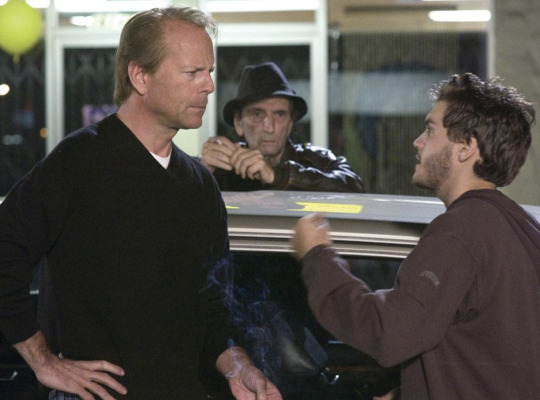
Cosmo and Sonny’s own posturing gradually emerges as being more dangerous than Johnny’s because it's more integrated into society. They’re the type of creeps who rewrite the rulebook to suit them, and attack journalists who try to tell the truth. When a fictitious documentarian asks Sonny about his son's drug connections, the father shrugs, “Did he sell a little weed? Sure.” But when the interviewer presses him further, Sonny snaps, “I’m a taxpayer and I’m a citizen and you are a jerk-off.”
Cassavetes, of course, understands growing up with a father who left a giant footprint to fill. His father, John Cassavetes, the writer-director of Shadows and Faces and A Woman Under the Influence, was one of the major pioneers of independent cinema. He died when Nick was 30, before his son attempted to take up his legacy. “We never really talked film theory,” said Cassavetes. “My experience with my dad was more along the lines of how to be a man, how to be yourself, how to free yourself from what society tells you to do, how to release yourself as an artist.”
It makes sense that Cassavetes would make his own ambitious, and maddeningly singular film. And perhaps it even makes sense to him that fate has yet to give him the reward he’s earned. Alpha Dog deserves to be acknowledged as one of the most incisive examinations of machismo and the banality of evil. But like his fumbling criminals, he knows he’s not really in charge of his life. Admitted Cassavetes, “I'm not smart enough to really have a master plan for my career.”
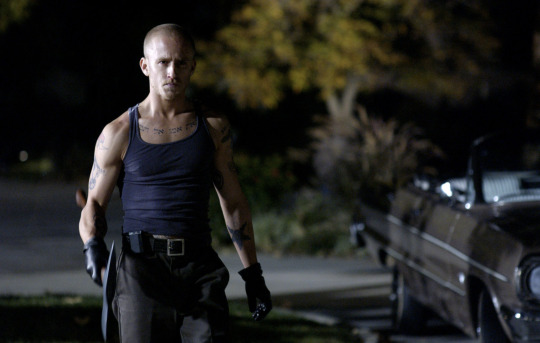
#alpha dog#alpha dog movie#nick cassavetes#john cassavetes#justin timberlake#emile hirsch#ben foster#amanda seyfried#olivia wilde#Nicholas Markowitz#Bruce Willis#Harry Dean Stanton#Oscilloscope Laboratories#O-Scope#musings#film writing
12 notes
·
View notes